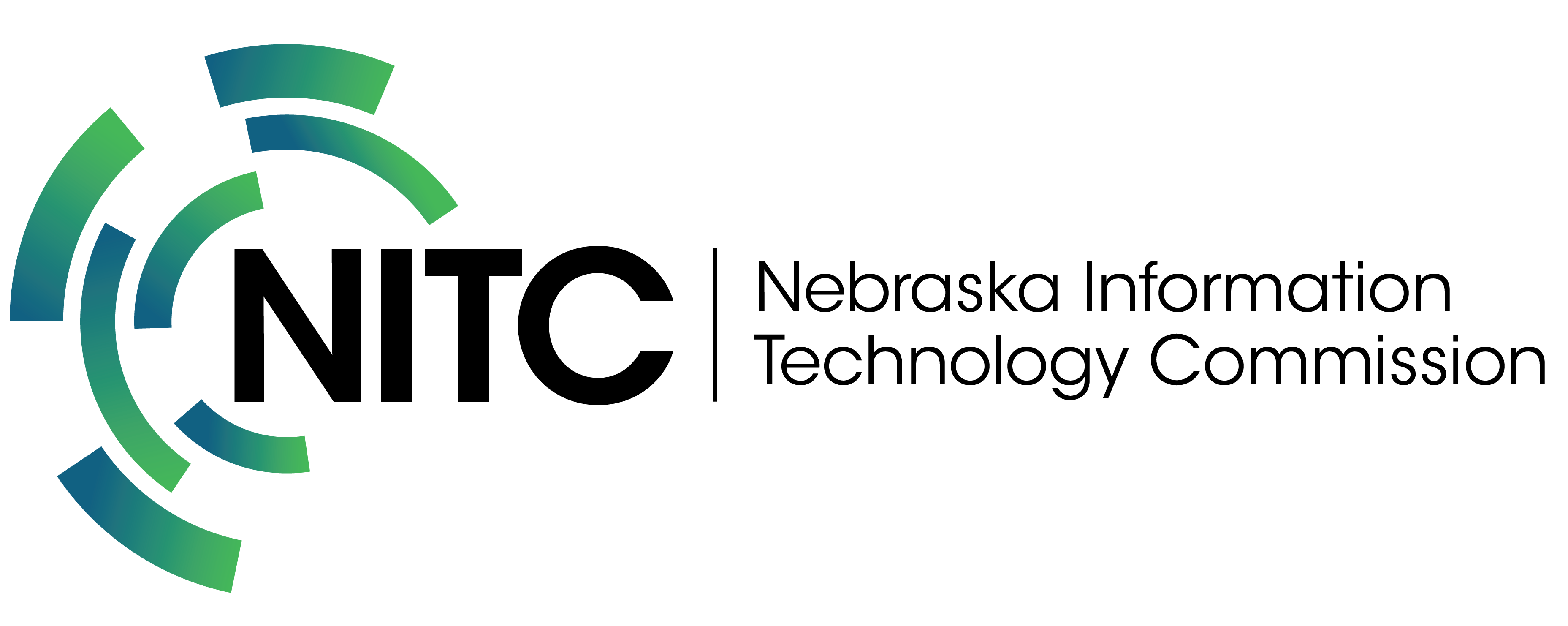Information Resources Cabinet
Minutes of the March 17, 1997 Meeting
Members Present:
Lt. Governor Kim Robak
Allan Abbott - Dept. of Roads
Alvin Abramson - Dept. of Motor Vehicles
Berri Balka - Dept. of Labor
Jim Van Horn - University of Nebraska
Carroll Krause - State College Board
Don Leuenberger - Health & Human Services
Ron Tussing - Nebr. State Patrol
Others Present:
Steve Henderson - DAS Central Data Processing
Mary Ann Lapham - CTA, Inc.
Jeff Elliott - HHS Finance & Support
Rod Armstrong - State Information Technology Coordinator
Bill Miller - DAS Communications/Central Data Processing
Dave Wagaman - DAS Budget Division
Tim Erickson - DAS Intergovernmental Data Services
Bob Shanahan - Dept. of Labor
Jim McGee - HHS Finance & Support
Mike Winkle - Nebr. Educational Telecommunications
Allan Albers - HHS Finance & Support
Monica Seeland - HHS Finance & Support
Stan Cooper - HHS Finance & Support
Lyn Heaton - DAS Budget Division
Bob Luth - DAS Accounting
Allen Curtis - Crime Commission
Mike Overton - Crime Commission
Bob Beecham - Dept. of Education
Gerry Oligmueller - DAS Budget Division
Century Date Change - Project Director's Report
Steve Henderson provided a progress report on the Century Date Change project (see handout for details).
Discussion of funding amounts and sources for four "replace instead of repair" projects approved at the January 28, 1997 meeting. Allan Abbott asked if fee increases would be necessary to partially finance the HHS projects. Allan Albers responded that the licensing portion of the project would be covered by existing professional licensure fees, but that the vital records portion may require extension of current fees that are scheduled to expire in 1999.
Lt. Governor Robak asked if the HHS project will be compatible with existing HHS systems. Don Leuenberger responded that data elements would need to conform with one another. Allan Albers indicated that HHS does not intend to develop stand-alone systems and will comply with whatever standards may be adopted by the IRC.
Don Leuenberger asked if operational savings could be expected with the move to a PC-based platform. Allan Albers responded that an estimated $56,000 annually would be saved in reduced data processing charges.
Ron Tussing moved, and Berri Balka seconded, that the following allocations from the Information Technology Infrastructure Fund be approved for replacement projects:
- Nebraska State Patrol -- $64,265
- DAS Accounting -- $509,532
- Corrections -- $230,057
- Health & Human Services (licensure project) -- $23,624
- Health & Human Services (vital records project) -- $18, 245
- (Total HHS -- $41,869)
Don Leuenberger recommended approval of the proposed funding for HHS, and indicated that the IRC may want to revisit the issue following the receipt of proposals for both the licensure and vital records projects.
The motion passed unanimously.
Medicaid Management Information System (MMIS)
Don Leuenberger presented a schedule for reviewing the market for outsourcing the MMIS system (see handout for details). He said that 30 to 40 states currently contract for Medicaid claims processing. Site visits will be conducted during the first week of April, with an Advance Planning Document prepared by May. Market survey work would be completed by June. This does not constitute a final decision on outsourcing the system.
Don clarified that there are several parts to the Medicaid system, and that the topic under discussion involves claims processing. Other aspects of the system, such as eligibility determination, are part of the N-Focus project.
There is a problem associated with the current data base software for the MMIS system that should be addressed. Support by IBM for the current data base software will be ending this year, and there is a century date problem. Steve Henderson commented that it is not unusual for vendors to discontinue support for older systems.
The first option would be to simply address the CDC problem at a cost of about $2.1 million. The second option is to convert the current data base to DB2 software, addressing CDC issues in the process, at a cost of about $3 million. Federal match of about 60% will be available for the DB2 conversion.
Lt. Governor Robak asked if Don Leuenberger had a recommendation. His recommendation was the second option, combining the conversion to DB2 with CDC compliance work. Lt. Governor Robak asked if the recommendation would add to the CDP backlog. Bill Miller responded that this work is already included in CDP workload figures.
Lt. Governor Robak commented that federal funds may not be available when they are expected, so the decision should not be based on the availability of federal match. Don Leuenberger said that money would be found in the HHS budget in the event federal money is not forthcoming.
Lt. Governor Robak inquired as to the impact on CDP should MMIS be outsourced. Bill Miller responded that N-Focus has added considerable computer cycles to operation of the mainframe, and outsourcing MMIS should not be a problem. Don Leuenberger commented that the mainframe will not go away even if MMIS is outsourced.
Carroll Krause asked if a final decision had been made to outsource. Don Leuenberger replied that it is a high probability, but not final.
Carroll Krause moved, and Jim Van Horn seconded, that the proposed upgrade to DB2 be approved. The motion passed unanimously. Lt. Governor Robak asked that the analysis of the outsourcing option move ahead quickly, and that a recommendation and plan should be presented in June.
Human Resources/Financial Management Systems
Bob Luth reported on a demonstration of an updated payroll system under consideration at the University of Nebraska. He reported that HHS has created a committee to study interim solutions, while DAS Accounting is seeking funds for a broad study of human resources and financial management systems.
Jim Van Horn indicated that the University will be making a decision soon on a vendor for a new system. Don Leuenberger said that about 80 people from several state agencies attended the demonstration, and the reaction was enthusiastic. Jim Van Horn said that executive briefings on the system may be scheduled.
Lt. Governor Robak inquired as to the total project cost. Jim Van Horn responded that both human resources and financial management systems were projected to cost $8 million over 5 years. Lt. Governor Robak asked what other states are doing. Bob Luth said that some states are using "off-the-shelf" systems, but that these systems usually require significant modifications. Bill Miller pointed out that government accounting is considerably different than private sector accounting, and most current systems are oriented toward the private sector.
Jim Van Horn said that vendors have adapted their systems to higher education. Bob Luth said that state government has different requirements than the University, but that there may be opportunities for a partnership.
Lt. Governor Robak inquired about the time frame for a state government solution. Bob Luth responded that interim solutions are being explored right now, and that the comprehensive study of state government-wide requirements would be done within a year. Lt. Governor Robak expressed concerns that the time line was too long, and asked if it could be completed sooner. Bob Luth responded that consultants will be sought to assist in the evaluation of requirements and solutions, but that it is difficult to find people to assist in the evaluation who are not also selling a product.
Lt. Governor Robak asked how users would know what they want if they don't know what is available or possible. Bob Luth said that business processes need to drive the technology decisions. Don Leuenberger commented that familiarity with the current routine makes it difficult for users to "think outside the box." Jim Van Horn said that the University's new Student Information System has dramatically improved the business of managing student registration and accounts; waiting lines have virtually disappeared.
Allan Abbott commented that we too often let technology dictate decisions, and that business needs should be the driver. Lt. Governor Robak said that agency directors need to be approached and that possibilities beyond current practice need to be pointed out.
Lt. Governor Robak expressed concerns that state government would fall further behind the University, that a new system for the state would not be in place until around 2000 when the University will be looking at their next upgrade. Bob Luth responded that quality could be compromised if efforts are made to accelerate the process.
Don Leuenberger said that the state will miss potential savings that could be achieved by going through a combined selection process with the University. Lt. Governor Robak expressed frustration with the state's pace, and inquired how the state's study group would interact with the IRC. Bob Luth responded that the study group would be open to whatever type of interaction the IRC desires.
Criminal Justice Information System (CJIS)
Under "other business," Allen Curtis presented a summary report on the CJIS project (see handout for details). The system is designed to link existing criminal justice systems and data. The strategic plan for the project was completed after the deadline for submission of budget requests, and funding is needed to begin implementation.
Lt. Governor Robak asked what decisions need to be made. Allen Curtis responded that decisions are needed on governance (where project coordination should be located and who is responsible), standards development, and funding. Cost for the total project is estimated at $7 million over 5 years, with some federal funding available. To maintain momentum, some funding is needed in the next year in order to show progress.
Gerry Oligmueller indicated that their is some ownership of the project in the Appropriations Committee. Ron Tussing said that something needs to be done soon. He also indicated his view that the Crime Commission appears to be the best approach as far as governance. Gerry Oligmueller said that there may be some room in the Governor's crime initiatives to provide some funding.
Lt. Governor Robak said that the issue needs to be put on the fast track, and asked Gerry Oligmueller to work with the Crime Commission, State Patrol, Corrections, and DAS Intergovernmental Data Services to make something happen.
Planning Session
Lt. Governor Robak expressed concerns that the IRC has been functioning exclusively as a reactive group, and that a vision and long-range plan does not exist. She also expressed concerns that small agencies are unable to keep up.
Don Leuenberger said that the issue goes beyond technology, that we have not collectively thought through business needs. The IRC should have a vision for state government technology deployment and funding. Carroll Krause said that incentives, such as a funding pool, are needed. Lt. Governor Robak said that we need to get out of the crisis mode.
Prior to scheduling another regular meeting, the IRC agreed to schedule a planning session to discuss these larger issue. Berri Balka and Don Leuenberger agreed to assist with the agenda.
The meeting adjourned at 10:30 a.m.
meeting minutes
